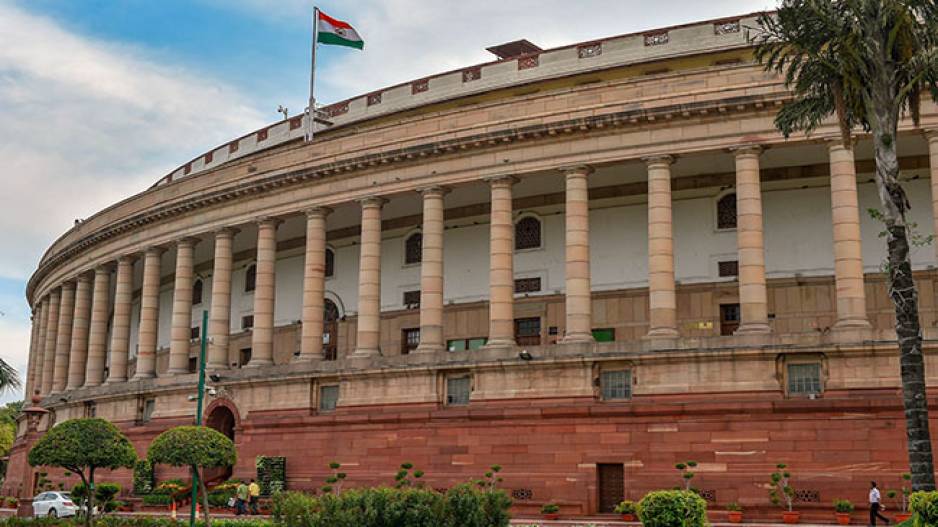Recommended Stories
Politicians must be heaving a huge sigh of relief at the Supreme Court decision to lob the ball to the court of Parliament on the question of disqualification of candidates charge sheeted in criminal cases. They know Parliament is their ‘playground’ and they can frame their own rules of the game. Many of them must have dreaded the prospect of the apex court taking a call on the contentious issue, as it has often done in the past. But with the ball now in their court, they can afford to breathe easy.
Anyone who believes Parliament would take up the challenge and pass a law barring charge sheeted netas from contesting elections is living in a fool’s paradise. The conduct of our elected parliamentarians in the past should put at rest any such fond hope. Readers would perhaps recall how Parliament had responded when the same Supreme Court, in a judgment on July 10, 2013, had barred politicians convicted in a criminal case from contesting elections. The UPA government in power at the time immediately issued an ordinance nullifying the apex court ruling. It goes to the eternal credit of Rahul Gandhi, just an MP then, that he gate crashed into a press conference at the Press Club of India being addressed by the Congress media cell chief Ajay Maken, dubbed the ordinance ‘nonsense’ and effectively sounded its death knell saying it should be ‘torn and thrown away’. And it is not as if the Congress was alone in this brazen attempt to overturn the apex court ruling; there was a virtual consensus among ALL parties. Had Rahul Gandhi’s surprise intervention not nixed it in the nick of time, it would have sailed through Parliament if the ordinance had been placed for its approval.
Forget what happened in 2013. Even what Attorney General KK Venugopal said in the course of his submission before the Supreme Court during the hearing on Tuesday gives enough indication of the fact that while the governments may have changed, the thinking hasn’t. The same alibis that were used by Messrs P Chidamabaram and Kapil Sibal to defend the ordinance then was used by Venugopal yesterday to argue against disqualification of convicted netas. “False cases are frequently filed against politicians ahead of elections.” “The right to contest is part of the right to vote.” “One cannot be disqualified merely on the basis of an allegation,” conveniently blurring the line between a ‘mere allegation’ and a charge sheet. Anyone with even a nodding acquaintance with law would know that a person cannot be charge sheeted unless the court finds that there is enough prima facie evidence to frame charges against him/her. So, the argument that there should be no bar on contesting election merely on the basis of an allegation is rather ingenious.
Even in the unlikely event of Parliament passing a law barring convicted politicians from contesting polls – due to public pressure or to take the moral high ground – our ‘honourable’ MPs can be trusted to leave enough loophole in the law to ensure that the convicted politician would walk right through it. One possible way to do this is to have a provison in the law that the concerned politician cannot be barred till the appeals process is over. And the appeals process in India, as everyone knows, can drag on for ages. By the time it is over, the politician, in all likelihood, would have died or retired from active politics.
The apex court’s direction for adequate publicity to the criminal antecedent of candidates by way of declarations in leading newspapers and mention in the party website before the election so that the voters can make an ‘informed choice’ amounts to precious little. It is not as if people do not know about the criminal cases against candidates. The fact they still vote for such persons suggests one of two things. One, they could not care less because they know that a ‘bahubali neta’ is more effective in getting things done than a gentleman with a spotless record. And two, they don’t really have a choice because there are very few untainted candidates in fray.
Either way, the onus is now on the people take things into their hands now that the Supreme Court has refused to intervene and Parliament is unlikely to legislate. They must resolve not to vote for candidates with criminal antecedents even if parties continue to field them and press the NOTA button instead if they feel none of the candidates has a clean record. Once the parties realize candidates with criminal records would not win, they would stop selecting them – law or no law.
Eternal vigilance, it has been said, is the price of democracy. If the people lower their guard, they would be leaving the field open for charlatans to overwhelm Parliament – and sate Assemblies.
(DISCLAIMER: This is an opinion piece. The views expressed are author’s own and have nothing to do with OTV’s charter or views. OTV does not assume any responsibility or liability for the same)













